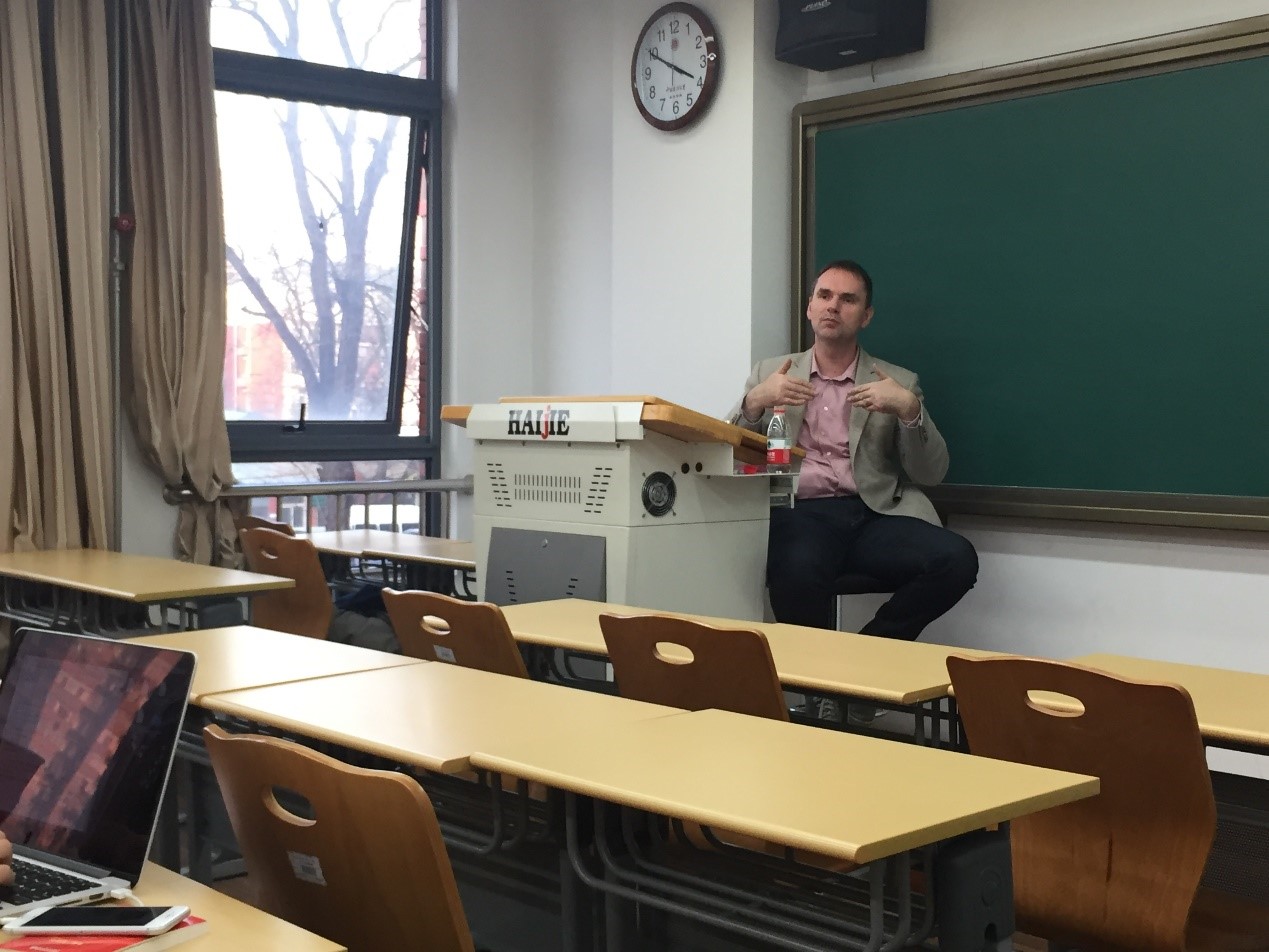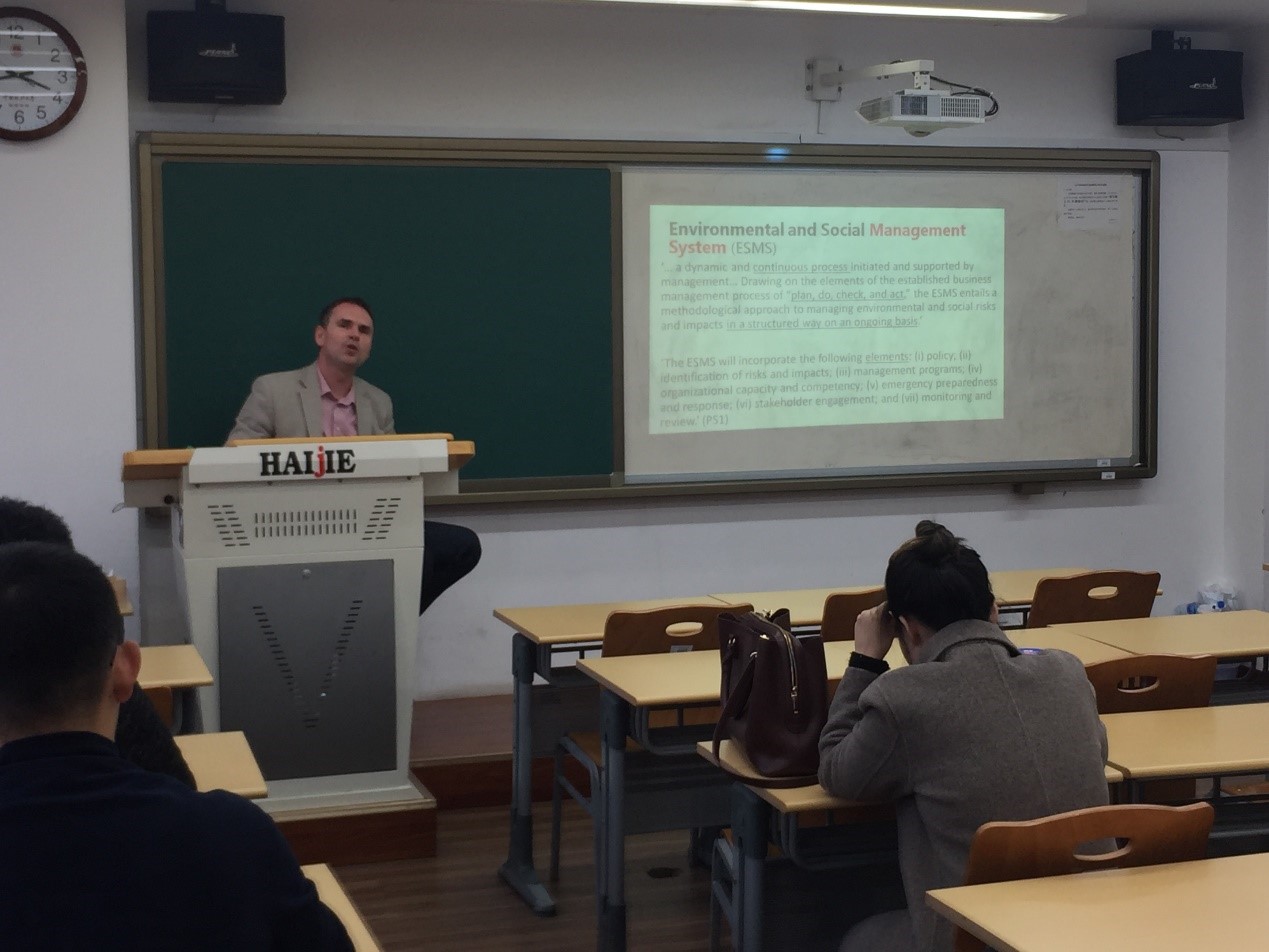On the afternoon of November 29, 2018, the 349thGlobal Human Rights Forum series lecture was held at the A210. The Institute invited Professor Radu Mares of the Raoul Wallenberg Institute for Human Rights and Humanitarian Law to give an academic lecture to students on the theme of “Human Rights Risk Management”.
Professor Mares first briefly introduced his academic background to the students. He mainly studied human rights issues from the perspective of economic globalization and served as associate professor and honorary professor at Lund University and Wuhan University, respectively.

Then, Professor Mares introduced the concept of global value chain under the background of economic globalization and raised the issue of commercial and human rights protection. With the development of information technology, transportation, logistic and trade liberalization, the trade pattern has gradually changed. A car may be designed by China, made in Germany, assembled in Italy, sold in the UK, and 50 countries around the world can be involved. However, a complex value chain may create a dilemma for human rights protection. Take the Congolese mining industry as an example. Different organizations (local rebel groups, mining companies, independent armed groups, etc.) purchase arms and equipment by exporting minerals to different multinational companies and making profits. The exported minerals are refined by smelters and become a component of mobile phones sold worldwide, flowing to consumers. But who should be responsible for the armed conflicts that took place in the Congo and the human rights violated by armed conflicts? At present, there are nearly 100,000 leading companies, parent companies and millions of subsidiaries and suppliers in the global value chain. An overly complex supply chain makes it difficult to manage it and creates a dispersion of human rights responsibilities.
Professor Mares then analyzed the reasons and necessity for companies to take human rights obligations. From the perspective of traditional international human rights law, the state is the subject of human rights and must respect, guarantee and realize human rights. Moreover, the United Nations has established reporting and dialogue mechanisms, individual communications mechanisms and international and regional courts to oversee the State’s obligation to implement human rights guarantees. However, in practice, due to the gap between international law and domestic law, the different national legislation and the transaction of power and money, the state has loopholes and defects in the process of regulating enterprises. Enterprises have often become the subject of human rights violations. For example, the collapse of a multinational enterprise building in Lana Plaza has led to the death of 1,127 workers and the employment of child labor by Congo's multinational companies to mine minerals. Moreover, enterprises bear small risks and profit from them in the trade supply chain, and should assume corresponding human rights obligations under the supervision of the state.

Finally, Professor Mares introduced the guiding principles of business and human rights established by the United Nations in 2011. The main contents of this principle are as follows: First, Enterprises must respect human rights and not violate the rights of others. The commitment of human rights responsibilities must conform to the provisions of domestic laws and international human rights standards. Second, the source of corporate human rights obligations are the International Bill of Rights and the core international Labor Conventions. Third, enterprises must perform due diligence and take measures to recognize, prevent and eliminate adverse human rights impacts. Fourth, enterprises must establish human rights impact assessment systems, such as the European milk powder case in Senegal, the company invites experts to develop human rights assessment indicators, from dimensions to assess the human rights impact of a company's business practices. In addition, enterprises should assume their due human rights responsibilities from the perspectives of investment law, trade law, information disclosure law, transnational litigation, and cooperative relations.
After listening to the lectures, the students raised some questions about the content of the lectures, and Professor Mares patiently answered for us. In the end, the lecture ended with the warm applause of the students.
Written by Huang Jiasheng
Translated by Jia Zichen